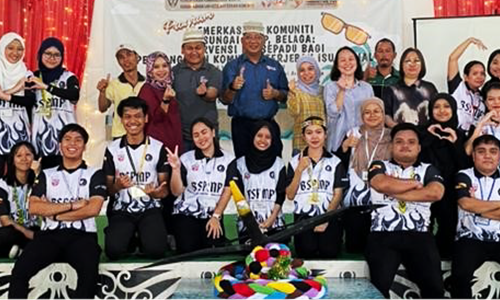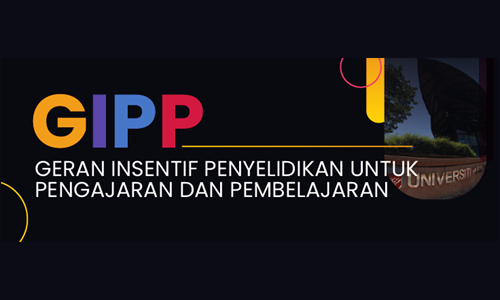| |
|
For the last few decades, the term VUCA has gained immense popularity as a term identifying situations or experiences in a visibly changing world. The acronym which stands for “Volatile”, “Uncertain”, “Complex”, and “Ambiguous" contains several approaches which includes working, thinking and making sense of the world in general. It has also been popularly used in the context of teaching and learning since the term was first coined in the 1980s. However, today, VUCA is no longer sufficient to assess the future teaching and learning scenarios. A new terminology called BANI was recently proposed as it paints a clearer picture on how the world looks. BANI stands for “Brittle”, “Anxious”, “Non-linear”, and “Incomprehensible". Today, people do not feel uncertain anymore, they are anxious. Things are not complex anymore, instead, they obey a non-linear system; and what used to be ambiguous now appears incomprehensible. The acronym of BANI hints at viable options for us to respond to current challenges. A brittle situation now requires the capacity and resilience. If we feel anxious, we need empathy and mindfulness, if something is non-linear, it calls for understanding of context and adaptivity. And, if something is incomprehensible, it demands transparency and intuition.
|
|

|
Grabmeier, S. (2020, July 28). BANI versus VUCA: a new acronym to describe the world.
|
|
Knowing that we are now living in a BANI world, a question that we ask would be how can we equip ourselves for the forthcoming challenges, especially in terms of education. The recent pandemic has taught us that anything is possible to happen. We have to quickly adapt to the pedagogical alternatives, switching from physical class to virtual mode, and that is just the beginning. We now have to be ready for a lot of uncertainties. One of the many aspects to consider in preparing ourselves for these uncertainties is our inner psychological resources. When we talk about human, financial and social capital, it is almost familiar to us as we know these concepts, their definitions and what they imply. Majority of us may read, hear and even use the terms on a daily basis. However, most of us are still unfamiliar with the concept of Psychological Capital (PsyCap) and what the term entails. By definition, it is a psychological resource that covers four malleable and manageable constructs of HERO: Hope, Efficacy, Resilience and Optimism. PsyCap goes beyond human capital of ‘what you know’, social capital of ‘who you know’ and financial capital of ‘what you have’. In general, it concerns about ‘who you are’ and ‘who you are becoming.’ The first construct in HERO, which is hope, composed of two components: agency (goal-directed energy) and pathways. Agency refers to an individual’s motivation to attain the goals set to achieve while pathway refers to the means for which the goals can be achieved. Individuals with high level of hope display greater amount of goal-directed energy and are much more prone to seek for alternative pathways in the journey of achieving their goals in comparison to those with low level of hope. The next construct, efficacy, stems from Bandura’s Social Cognitive Theory. It refers to one’s confidence in his or her ability to mobilize their motivation, cognitive resources and courses of action in order to achieve high level of performance. In comparison to people with low self-efficacy that have low self-belief in their own ability, people with high self-efficacy have more confidence in their ability to control outcomes and succeed in overcoming difficult challenges. In addition, resilience refers to the ability of an individual to come back stronger when faced with adversity, failure, uncertainty and stressful life demands. Individuals high in resilience tend to be better at adapting to negative experiences and changes in the external environment. Lastly, optimism refers to an individual’s expectancy of positive outcomes. People who possess high level of optimism usually build positive expectancies of future in order to stay motivated while pursuing their goals and deal with difficult circumstances. Hypothetically, when an individual develops PsyCap, they have the confidence to take on challenges and put in the necessary effort to succeed in overcoming them. The individual is able to remain optimistic and make positive attributions about the current success and persevere towards achieving their target or goals. When there is a necessity, the individual will redirect, make adjustments to the problems faced and bounce back to make sure success is within their reach.
|
 |
Luthans, F. & Youssef-Morgan, C. M. (2017). Psychological Capital: An Evidence-Based Positive Approach.
Annual Review of Organizational Psychology and Organizational Behavior.
|
|
When four psychological constructs of HERO go together and interact synergistically, they produce differentiated manifestations over time and across context. As such, PsyCap has been linked with various positive outcomes including one’s engagement, satisfaction, motivation, happiness and well-being. Although the concept was first introduced within industrial organisations following the realisation of addressing organisational challenges, research evidence shows PsyCap is equally relevant in the educational context as educational organisations too face difficult challenges. The 21st century educators in the BANI context are faced with astronomical challenges. The complexities range from making sure no one is left behind in education, making education relevant to the diverse learners, and ensuring transfer of learning occurs which will enable students to apply learning in other areas. The question is, can educators meet these expectations? Are educators equipped with necessary resources to face those expectations in the BANI world? With the recent adjustments to the teaching and learning approaches following the pandemic, it makes sense to negate these questions. Educators specifically in the higher education, encounter hardship, the increasing demands of standards and accountability which put them under constant pressure. Hence, educators need to be equipped with psychological resources of PsyCap as one needs to have a strong sense of efficacy in order to accomplish goals. A similar case could be made for the need to be resilient because setbacks are inevitable in higher education, and the ability to bounce back is a good predictor of success.
Developing and fostering PsyCap within oneself is not solely for the purpose of overcoming challenging circumstances. It also functions as a psychological resource that can help others flourish and achieve their fullest potential. PsyCap has been linked with a wide range of variables like job commitment and satisfaction, happiness and well-being as well as seeking behaviour (Golparvar, 2013; Luthans et al., 2005; Luthans, 2002; Luthans, Youseff & Avolio, 2006). It has also been upheld as an effective construct for defending against stress, negative emotions and burnout among educators. Individual with high level of PsyCap are able to cope better with challenges, have higher job performance and satisfaction and lesser depressive symptoms in comparison to those with lower level of PsyCap. PsyCap was also found to increase university lecturer’s well-being, and those with high level of PsyCap rarely experience burnout, emotional exhaustion and depersonalisation. Most study done researching PsyCap and educators linked individual with PsyCap to have a positive mental state. In addition, teachers were found to be committed in their professional work and effective in teaching as they developed PsyCap (Burhanuddin, Ahmad, Said & Asimiran, 2020).
Research evidence suggested that PsyCap has been increasingly recognized and positively linked with one’s productivity (Peterson et al., 2011). It is a critical factor in motivation, effective cognitive processing and achievement, entailing the positive evaluation of a given situation and the drive to succeed. Numerous works in the past has shown that these positive, theory-based constructs are state-like and developable, and they affect the attitudes, behaviours and performance of individual towards their work. With the ever challenging task of educators in higher education to keep students focused on the academic goals, helping to monitor and evaluate students’ progress over time as well as providing intellectual foil for brainstorming and self-reflection that match 21st century needs, the value of PsyCap is important to the educators in BANI world. Educators in the 21st century not only have to be experts in their own discipline, but they also need to acquire a multitude set of skills to prepare for the needs of the students as well as to strengthen their own teaching and learning.
|
| |
References
|
| |
- Burhanuddin, N. A. N., Ahmad, N. A., Said, R. R., & Asimiran, S. (2019). A Systematic Review of the Psychological Capital (PsyCap) Research Development: Implementation and Gaps. International Journal of Academic Research in Progressive Education and Development, 8(3), 133–150.
- Golparvar, M. (2013). Structural model of the relationship between spiritual connection and psychological capital and spiritual well-being of nurses, Quarterly journal of nursing management, 3(2), 30-40.
- Grabmeier, S. (2020, July 28). BANI versus VUCA: A New Acronym to Describe The World. https://stephangrabmeier.de/bani-versus-vuca/#infographic
- Luthans, F. (2002). The need for and meaning of positive organizational behaviour. Journal of Organizational Behaviour, 23, 695-706.
- Luthans, F., Avolio, B. J., Walumbwa, F. O., & Li, W. (2005). The psychological capital of Chinese workers: Exploring the relationship with performance. Management and Organization Review, 1, 247–269.
- Luthans, F., Youssef, C. M., & Avolio, B. J. (2006). Psychological Capital: Developing the Human Competitive Edge. Madison Avenue, New York: Oxford University Press, Inc.
- Luthans, F. & Youssef-Morgan, C. M. (2017). Psychological Capital: An Evidence-Based Positive Approach. Annual Review of Organizational Psychology and Organizational Behavior. 4:17.1–17.28
|
| |
|
| |
|
Prepared by:
|





























